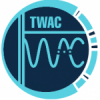Institution: CNRS
Laboratory: IJCLab
Lab address: Bât. 209A, 15 rue Georges Clémenceau, 91405 Orsay cedex
Supervisor : Christelle Bruni
e-mail : christelle.bruni@ijclab.in2p3.fr
internship conditions (stipend, travel, lodging, food,…) : standard internship gratification, participation in half of the daily travels
Application deadline: 31st of January
Particle accelerators are undergoing a change of perspective towards more compact and reliable machines, in line with the needs of fundamental particle physics for future colliders. While the well-proven microwave driver technology (so-called RF) of the past decades has reached very high levels of performance and reliability, innovative acceleration techniques such as Laser-Plasma Acceleration (LPA) and Dielectric Laser Acceleration (DLA) are emerging as concrete alternatives for the next generation of accelerators. These approaches promise to drastically reduce the size of future accelerating structures down to a centimeter scale. Higher compactness could drastically push forward their use for fundamental and applied sciences as well as in biology, medicine, notably in radiotherapy, or industry while reducing the cost of the infrastructure, to cite some of the most prominent areas of outstanding recent progress. Several strategies are being studied to increase the energy gain per meter and reduce the size of the accelerators, such as acceleration with high-power lasers; either in a gaseous medium like laser-plasma acceleration (LPA) schemes, or a solid medium like dielectric acceleration (DLA). Terahertz dielectric acceleration is an emerging and up-and-coming field in accelerator physics. Terahertz frequency electromagnetic waves are coupled in microstructures to accelerate charged particles. However, the research in this field is still in its early stages (the first experimental demonstration was in 2014), and significant technical challenges remain to be addressed. The Master 2 internship is proposed in the framework of the European project TWAC aiming to create a breakthrough in accelerator technology (https://twac.ijclab.in2p3.fr/en/twac/).
The internship project aims to contribute valuable optimization strategies to enhance the efficiency and performance of next-generation particle accelerators. The master 2 student will focus on understanding the interaction of charged particle beams with the accelerating fields. For this, she/he will develop theoretical analysis, computational simulations, and experiments both in optics, laser, and charged particle beams to investigate beam properties in different conditions. Key parameters that influence the beam properties will be highlighted and modifications or adjustments to improve performance will be proposed. To end, she/he will collaborate with research facilities and institutions of the TWAC consortium to compare simulation results with experimental data, validating the findings and recommendations from the computational models.
The Master 2 internship holds the potential to be pursued into a Ph.D. program. The ED Pheniics grant process will condition the finding. Alternative possible funding under MSCA is under evaluation and is not guaranteed.
Pursuing to PhD: Yes
Expected contract-funding ? To be discussed
